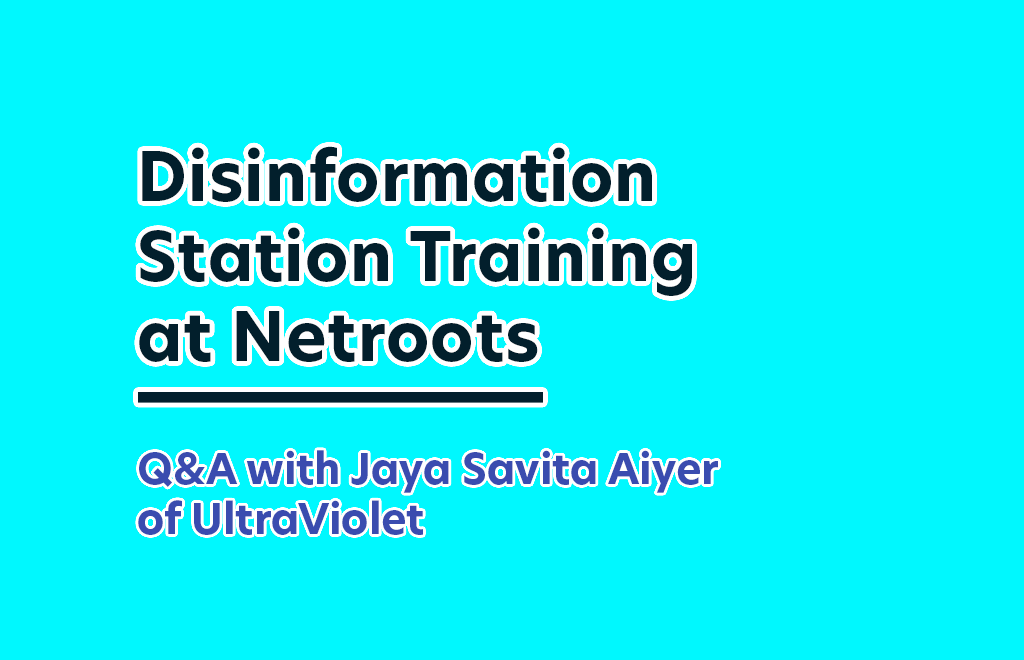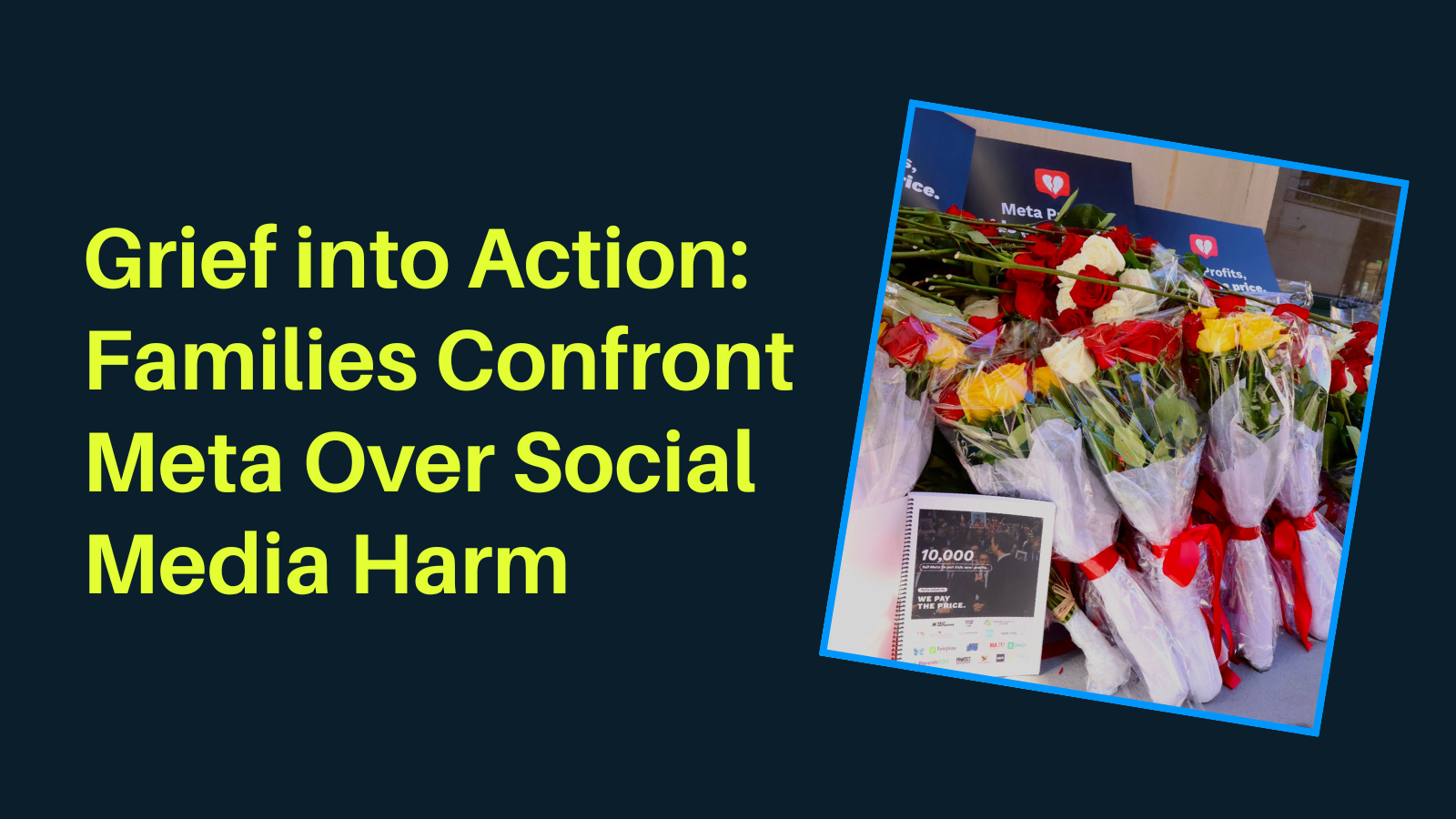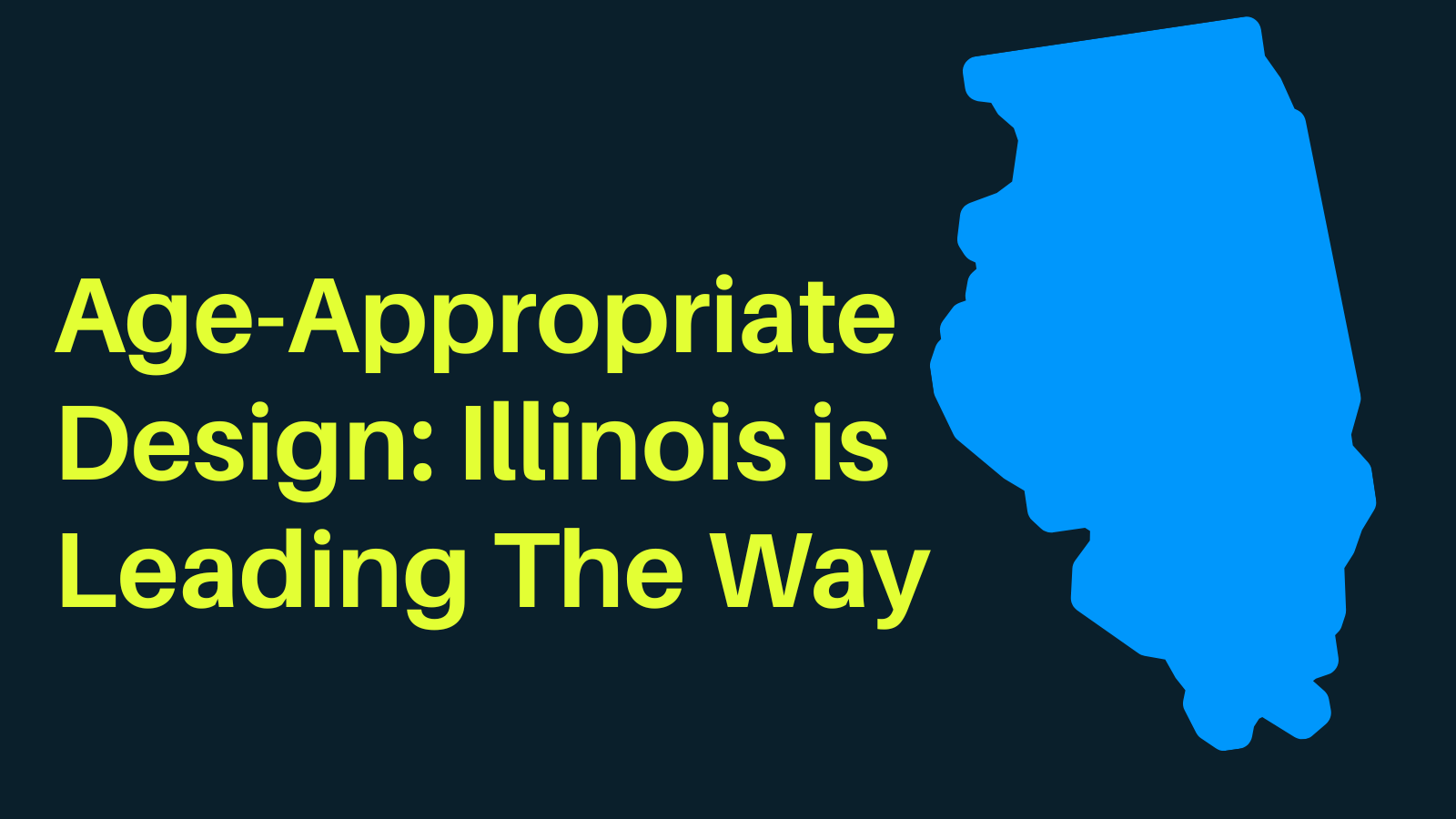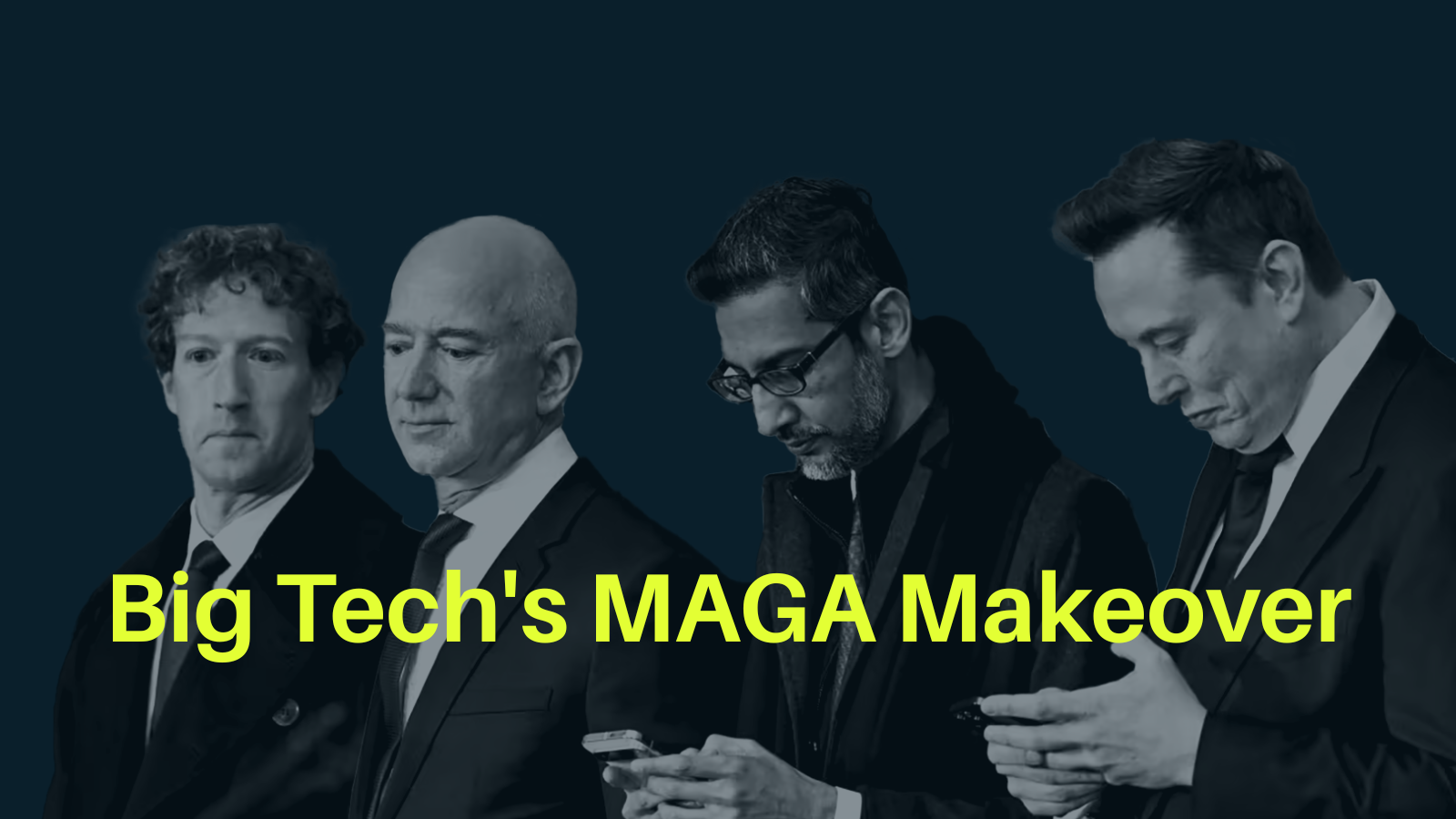Last month, I attended Netroots Nation 2023 in Chicago, IL, where I had the opportunity to explore a diverse range of digital and tech-focused trainings and panels. Among these engaging sessions was “Disinformation Station,” a training led by Jaya Savita Aiyer, Campaign Director at the national gender justice organization UltraViolet.
During her presentation, Jaya shed light on the intersection of technology and activism, specifically focused on disinformation. Intrigued by the training and audience engagement in-person, I sat down with Jaya to delve deeper into her insights, hoping to share this valuable information with a broader audience. This conversation provided an exciting glimpse into UltraViolet’s efforts and perspectives on exploring technology’s role in activism and disinformation.
Tell us a bit about yourself: What brought you to Ultraviolet and the Tech accountability space?
My background is in community organizing, with experience in affordable housing. It’s where I got my experience as an organizer in the traditional grassroots space. During the pandemic, I transitioned to more online, mastering the use of Facebook and Instagram for digital organizing. I was drawn to UltraViolet (UV) for its focus on gender justice and as a feminist organization and was particularly interested in the issue-areas of tech and bodily autonomy. I’m excited by UV’s work on tech accountability, particularly in combating gendered hate and disinformation. My interest in gendered disinformation has grown, recognizing the importance of feminist organizations like UV, since much of the hate and disinformation targets women and marginalized groups.
At UltraViolet’s Disinformation Station training, you shared a bit about the differences in your session about disinformation, misinformation, and malinformation. Can you break down for us what each is with examples?
Misinformation: It’s a lie, but unintentional. For instance, someone might mistakenly spread the belief that medication abortion can cause infertility out of concern for others’ safety, not realizing it’s untrue.
Disinformation: It’s a lie with an agenda. This type of falsehood is intentionally spread in right-wing spaces, on television, or through inflammatory ideologies. Disinformation aims to portray fiction as fact, causing deep harm and promoting a specific agenda. These lies can spread rapidly and become dangerous.
Malinformation: It could be true or false, but it’s meant to inflict damage. For example, someone might use malinformation by threatening to call the police after falsely claiming to know about someone’s abortion. This type of information intends to incite fear and harm.
Understanding these distinctions is crucial in combating the spread of false information and disinformation, especially in tackling issues like gendered hate and disinformation. Feminist organizations like UltraViolet play a critical role in addressing these pressing challenges that hurt historically marginalized communities most, particularly Black women and women of color.
What is the approach Ultraviolet is taking to combat and limit these tactics, which are primarily used to spread and fuel misogyny, racism, white supremacy, and more? What role does coalition partnership play here?
UltraViolet is taking a comprehensive approach to combat and limit tactics used to spread and fuel misogyny, racism, white supremacy, and other harmful narratives. As a convener for the Women’s Disinformation Defense Project, UltraViolet has brought together over 30 organizations committed to combating racialized and gendered disinformation. This diverse coalition includes amazing researchers, advocates, organizers, thought partners, and communications experts who pool their expertise and resources to combat gendered and racialized disinformation effectively.
The coalition’s efforts involve monitoring news and social media platforms, analyzing trends and talking points from right-wing spaces and disturbing online communities. By identifying disinformation in its early stages, we can develop counterpoints and create resources to share with partners. This process, known as “pre-bunking,” involves crafting messages and mobilizing messengers to proactively address disinformation before it gains traction. Additionally, they engage in “de-bunking,” a responsive and defensive approach that aims to debunk false narratives before they reach mainstream media. This may involve creating toolkits, easy-to-read graphics, and talking points to swiftly counter false information.
By leveraging the collective strength and expertise of this coalition, UltraViolet adopts both offensive and defensive strategies to combat disinformation effectively. The collaborative efforts of these organizations serve as a powerful force in fighting back against the harmful narratives that disproportionately target marginalized communities.
I was so impressed by your special guest, Jena Griswold, Colorado’s Secretary of State. She shared her powerful story about running for office and how she overcame online threats to win her race. How is her experience indicative of a larger problem and what can we do about it?
Jena Griswold was elected as Colorado’s Secretary of State in 2018 at the age of 34 — she was both the first woman ever elected to the position in the state, and the youngest Secretary of State to serve Colorado. In her race for re-election in 2022, she faced death threats and online hate speech and harassment.
Her experience reflects a broader issue of disinformation and its impact on women and marginalized groups entering the realm of politics, advocacy, and justice. Unfortunately, Secretary of State Griswold’s story is not unique, as many others also face death threats, harassment, and targeted campaigns questioning their authority and credibility when they assume positions of leadership.
To address this problem, we must be vigilant in not spreading disinformation. Remember not to retweet or lift up disinformation and attacks. Doing so brings more attention to bad actors’ pages and spreads hate and misogyny. If you must include it as a reference, take a screenshot. Linking to or resharing this content serves only to spread hate, disinformation, racism, and misogyny. If something online seems suspicious, report it. If you encounter false information, refrain from sharing it. We need to be mindful of the emotions and feelings being evoked by media and trust our instincts
Research has shown that disinformation, hate, and harassment on and offline deter women, especially Black women, and other women of color, from seeking public office. We must all play our part in making sure the internet is a safe space for everyone by amplifying positive, accurate messaging and reporting bad actors, hateful language, and disnformation. However, it’s really on Congress to regulate and Big Tech platforms to make profound shifts in existing policy to create an internet is safe for all – and not a playground for racist, misogynists, and white supremacists to spew hateful ideology and disinformation.
Additionally, we can take action by connecting with UltraViolet (UV) and following us on social media to support our efforts in countering gendered disinformation, hate, and harassment. By joining collective movements like UV, we can work together to combat the harmful narratives that hinder progress for women and marginalized communities seeking to make a positive impact in public service and advocacy.








